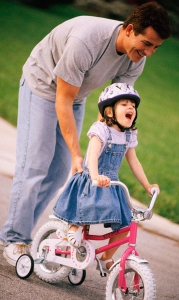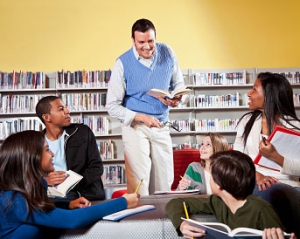The Children’s Project:
Our Teaching/Learning Program for Using the Book in Schools
The following are the basic elements of the teaching/learning program recommended for using the book in schools. Each parent and teacher receives a free copy of How To Raise Emotionally Healthy Children from the sponsoring school. They are encouraged to engage in the following activities:
 Parents…
Parents…
1. Learn by Doing. Parents read the book and immediately begin to implement the concepts in the daily interactions with their children.
2. Conscious Parenting. Parents keep a daily journal and become a student of your own behavior. At the end of each day, they take about 15 minutes to complete a brief questionnaire about their contribution to satisfying any of the children’s five critical needs and what they learned about their own behavior. These insights are a guide for future interactions.
3. Mutual Support. Parents have the opportunity to participate in a parent support group. Parents meet for 6-weekly sessions in a small group to share information, ask questions, present problems, give and receive feedback, and exchange ideas. Those who wish to can continue in successive sessions throughout the year. Sometimes a trained counselor or a facilitator guides the group; other times it may be a teacher, a non-professional leader or a leaderless group. (We provide a Facilitator’s Guide at no cost.)
Teachers…
 1. Provide three seminars with high school students on Parent/Child Relations. The students read the book, write book reports, discuss the material in class. High school and college students have been very positive about receiving this information. They have felt that the information would be valuable to them when they get married and have their own children—also in present relations with their parents, fellow students, friends, and significant others.
1. Provide three seminars with high school students on Parent/Child Relations. The students read the book, write book reports, discuss the material in class. High school and college students have been very positive about receiving this information. They have felt that the information would be valuable to them when they get married and have their own children—also in present relations with their parents, fellow students, friends, and significant others.
Concluding Thoughts
As children experience throughout their school life what it’s like to feel respected, important accepted, included and secure (the opposite of what most children now experience) and these needs become a classroom and school value, they are more likely to become self confident, independent, responsible, caring, civic-minded individuals, who will:
- Interact with classmates and elders in emotionally healthy ways
- Be concerned with the feelings and well being of others
- Accept challenges without excessive fear of failure
- Stay in school and graduate
- Avoid peer contacts that will get them in trouble and other self-defeating behavior
- As a higher achieving student, be willing to help others not doing as well
- As a student not doing well, be willing to ask others for help
- Admit a mistake, and not view it as a weakness
- Listen to feedback without defensiveness
- Learn to offer feedback constructively
- Not feel defeated by setbacks or failure, but be stimulated to work harder
- Cease teasing, even in jest, when it upsets someone
- Appreciate positive qualities or achievements of others
- Approach disagreements with friends and others in an agreeable manner
- Be a student of one’s own behavior with a view towards self-improvement


